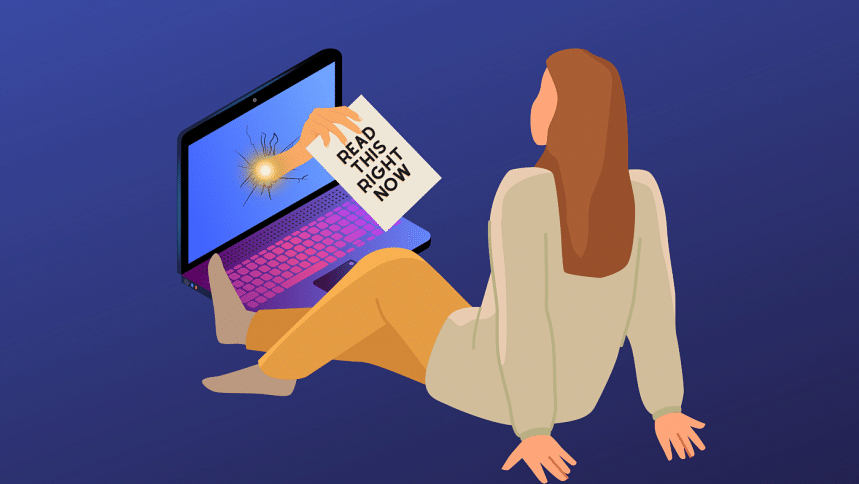Are you really choosing to read this article?

Let's get one thing straight, authoritarian and Orwellian governments are different entities. Eric Blair's Orwellian government is closer to the concept of totalitarianism than authoritarianism. In the novel, we see how the government may exploit its monopoly on the people's knowledge of their own language, history, and culture to oppress and control them.
The words you see and hear in everyday advertising are designed to influence your behaviour, as are the soundbites and talking points of political campaigns, which rarely provide the most nuanced perspective on the subjects. This is not exclusive to advertisements or political campaigns; this is extended to Instagram reels, YouTube video recommendations, TikTok's For You page, etc.
You can get away with not thinking too deeply or questioning your assumptions thanks to the prevalence of stock phrases and responses we've gleaned from media reports or copied from the Internet. Orwell's characterisation of the Party's techniques, including the employment of doublethink and the development of an omnipresent surveillance state, remains applicable in the present era of mass monitoring and propaganda.
Propaganda aims to align your opinion with the propagandists' opinion by making yourself believe that you have reached that opinion voluntarily. We can see a prominent example of it is Fritz Hippler's The Eternal Jew. Noam Chomsky propounded a model of propaganda in which he says that in democratic societies, the mass media are run by a small group of elite people who use it to promote their own goals no matter how neutral the media claims to be.
The model comprises five filters: who owns the media, advertising, relying on official sources, smear campaigns, and anti-communism. Together, these filters give the public a false sense of agreement and silence different points of view. The model implies that the media serves the interests of the power elite by promoting their views and hiding other points of view, which makes people agree with the power elite and shapes public opinion.
You might think that you are scrolling through your For You page harmlessly, but in this era, where being offline is a luxury none of us can afford, it is slowly eroding your vocabulary and impinging on your thoughts. The oligarchs would take advantage of the new phenomena to create a homogenous society or capitalise on the fact that almost everyone is chronically online, whether it is your choice or not.
You might say, "Hey, I am aware of serious issues by being online too." There's no denying that, but these significant matters have been vetted before reaching you. No platform would risk losing investor support by being controversial; it is as simple as that. The youth's painful disdain for politics and crucial decision-making procedures serve those who benefit from the youth's disdain. People tend to believe that they can spot propaganda from miles away, but it happens in subtle ways.
The path to enlightenment is not a smooth one, either. There are many loopholes, all of which serve the interests of the powerful few. Vague definitions of words that lead to retribution rather than clarity demonstrate how empty such government acts are. Pay close attention the next time you hear the word "Orwellian" used. The use of language for deception and manipulation would be an appropriate topic of discussion. The novel's bleak vision of a society devoid of personal space and choice serves as a cautionary tale about the perils of authoritarianism and the need of maintaining liberal democracy.
Azra Humayra is a part-time roach squasher and full-time trash television connoisseur. Send her show recommendations at: [email protected]

 For all latest news, follow The Daily Star's Google News channel.
For all latest news, follow The Daily Star's Google News channel. 







Comments